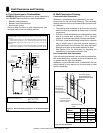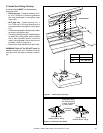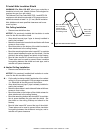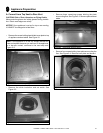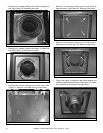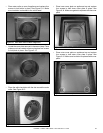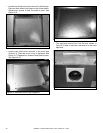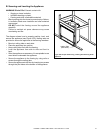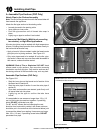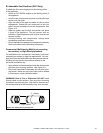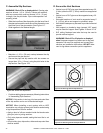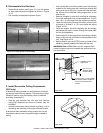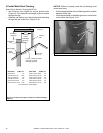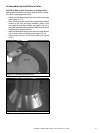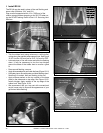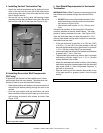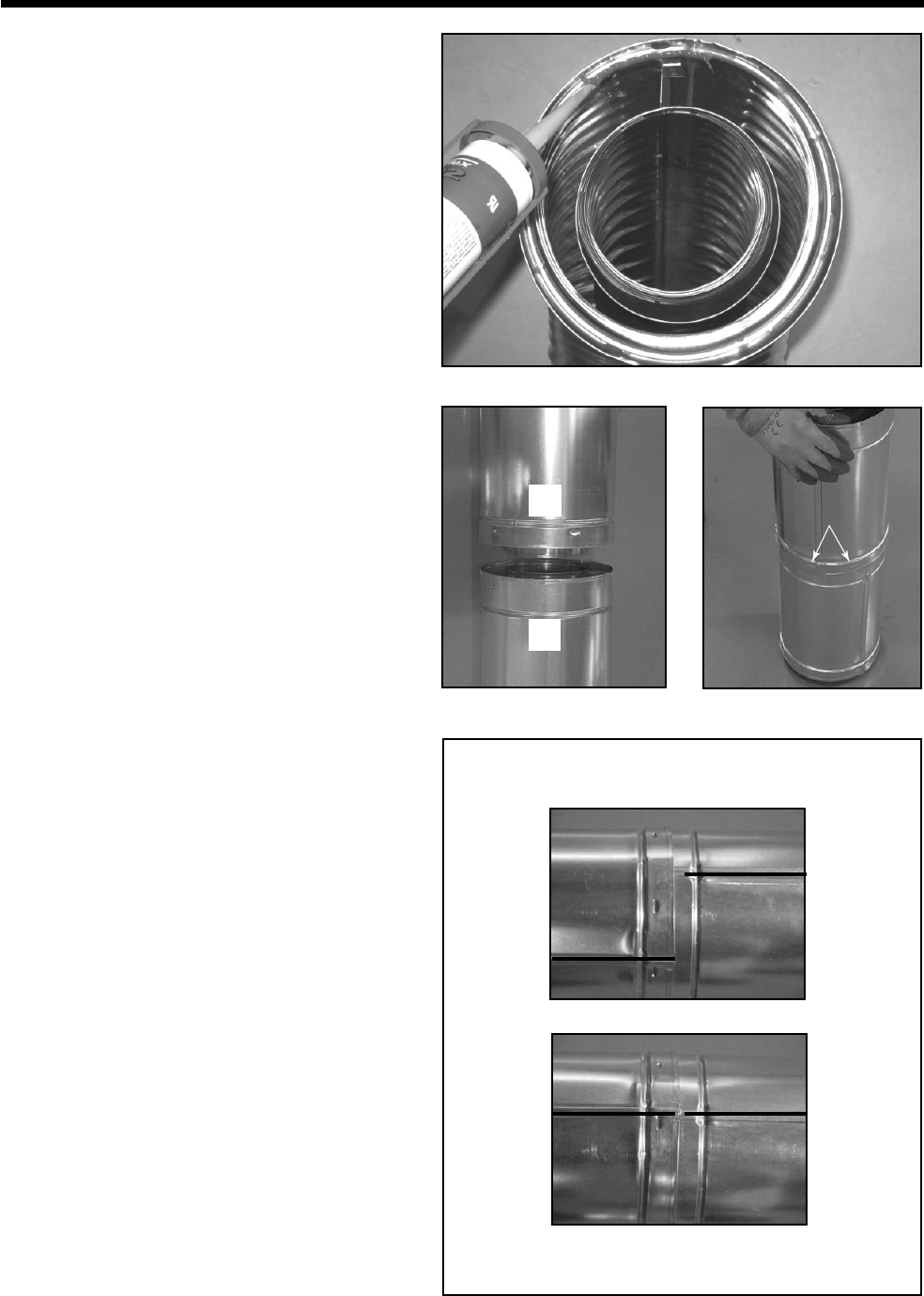
Heatilator • Caliber CNXT Series • 4047-132 Rev U • 11/0842
Lances
10
10
Installing Vent Pipe
A. Assemble Pipe Sections (DVP Only)
Attach Pipe to the Firebox Assembly
Note: The end of the pipe sections with the lanced tabs will
face towards the appliance.
Attach the fi rst pipe section to the starting collar:
• Lanced pipe end to the starting collar
• Inner pipe over inner collar
• Push the pipe section until all lanced tabs snap in
place
• Lightly tug on pipe to confi rm it has locked.
Figure 10.1 High Temperature Silicone Sealant
Figure 10.2
Figure 10.3
Assemble Pipe Sections (DVP Only)
Per Figure 10.2:
• Start the inner pipe on the lanced end of section A into
the fl ared end of section B.
• Start the outer pipe of section A over the outer pipe of
section B.
• Once both vents sections are started, push fi rmly until
all lanced tabs lock into place.
• Lightly tug on the pipe to confirm the tabs have
locked.
It is acceptable to use screws no longer than 1/2 in. (13
mm) to hold outer pipe sections together. If predrilling
holes, DO NOT penetrate inner pipe.
For 90° and 45° elbows that are changing the vent
direction from horizontal to vertical, one screw minimum
should be put in the outer fl ue at the horizontal elbow joint
to prevent the elbow from rotating. Use screws no longer
than 1/2 in. (13 mm). If predrilling screw holes, DO NOT
penetrate inner pipe.
Commercial, Multi-family (Multi-level exceeding
two stories), or High-Rise Applications
All outer pipe joints must be sealed with high temperature
silicone, including the slip section that connects directly to
the horizontal termination cap.
• Apply a bead of silicone sealant inside the female outer
pipe joint prior to joining sections. See Figure 10.1
• Only outer pipes need to be sealed. All unit collar, pipe,
slip section, elbow and cap outer fl ues shall be sealed in
this manner, unless otherwise stated.
WARNING! Risk of Fire or Explosion! DO NOT break
silicone seals on slip sections. Use care when removing
termination cap from slip pipe. If slip section seals are bro-
ken during removal of the termination cap, vent may leak.
Figure 10.4 Seams
Note: Make sure that the seams are not aligned to prevent
unintentional disconnection.
A
B
INCORRECT
CORRECT



